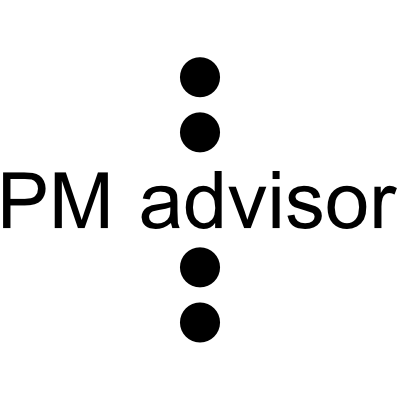
PMO Services
PMO
Project, Programme or Portfolio Management Office
PMOs are becoming increasingly important, as project management discipline is increasingly recognised as central to the success of an organisation.
ProjExc have recognised that in the current economic climate, there’s no time to waste in establishing a fully-functional PMOffice, whether in-house, outsourced or even virtual, and created a unique service offering. Take a look at why ProjExc are well placed to help you take control of your projects and how they can help you.
At PM Advisor, we thought that it was important to lay the ground for our thinking on PMOs and why they matter so much. On this page, we aim to take a look at:
what PMO is,
why you might think of having PMO for your organisation,
the basic components of the PMO,
the options that you might have, and finally
point you to some useful PMO resources..
What is PMO?
Generally, PMO is an abbreviation for a project management office. The PMO will offer:
guidance,
support,
reporting,
consistency, and often
a framework for management of an organisation’s project portfolio.
Some choose to use the term PMO to describe a program management office. The only real difference here when looking at it from a high-level, is that a program management office would additionally focus on business as usual activities, in the context of benefits realisation for the organisation.
The next consideration, is why you should have a PMO for your organisation. Clearly consistency is important when considering the approach, function and performance of project management (and program management) within your organisation. Furthermore, there is a huge advantage in having greater visibility of that project performance, often through KPI’s, and certainly with “one truth” for the whole organisation.
When researching PMO, one often comes across a view where it is not considered a short-term strategy to lowering costs. While this may be true, in our experience there is a considerable return on investment from dramatically reducing project objective failure rates, and providing management information in a timely manner to help improve success rates and appropriate decision making.
There are a number of components to PMO, namely:
methodologies,
supporting tools and templates, and
project manager competence.
Methodologies
Methodologies is an interesting one. There are a number of industry standard project management methodologies, including PMI, APM, Prince 2 (and the broader OGC frameworks) for project and programme management, as well as a large number of developed and the spoke organisational methodologies. Selection of the correct methodology for an organisation can be a subjective endeavour, and a number of criteria should be taken into account when making the correct decision. Clearly the PMO should have the necessary expertise and experience to help in the selection and subsequent implementation.
Tools
In support of the methodology selected, there will of course be a number of project management templates to be integrated, and often the organisation elects to utilise some or all of the functionalities of project management tools (software). The software selection and deployment in itself is a large minefield or organisation. By way of an example our own database of project management software tools is currently over the 200 mark. For this reason again it is critical that the PMO has sufficient knowledge to be able to procure, deploy and maintain the right systems.
Competence
With a solid appropriate methodology, and having implemented an integrated set of tools and templates, the other challenge presented to an organisation is that of ensuring that the project managers and their support teams of the competence (skills and experiences) necessary to effectively use them. The PMO will be instrumental in ensuring that this is achieved helping with recruitment, induction, and subsequent development and performance management of the team, in order for the organisation to leverage maximum benefit from the PMO.
Make or Buy?
The next major consideration, is one of make or buy. Does the organisation create its own in-house PMO, or does it outsource the operation. This decision is largely based on strategy of the organisation, predominantly in respect of whether the organisation prefers to focus on its core competences, or whether it prefers to retain greater control. We see that there are a number of major benefits in outsourcing a PMO, but we would wouldn’t we! This is largely a decision around overheads and fixed costs, but it is also important to take into account the value of ’independent’ advice and support, and up-to-date expertise. For this reason even when an organisation elects to create its own PMO, there is considerable merit in outsourcing the creation itself.
Useful Resources
There are a large number of useful and interesting PMO resources, which we highlight here.
PMI Knowledge Center
APM PMO SIG
ISO (ISO 21500 refers)

